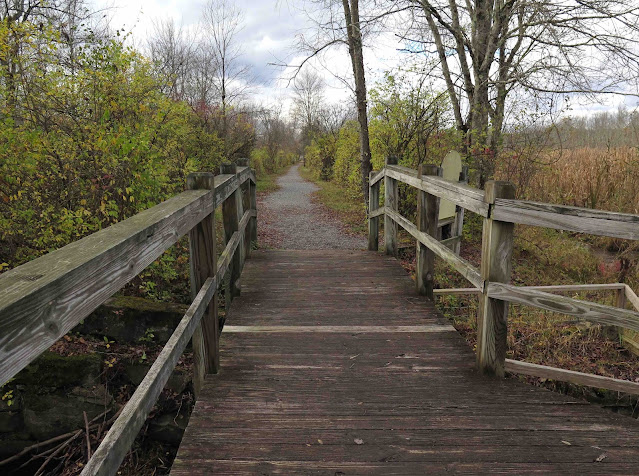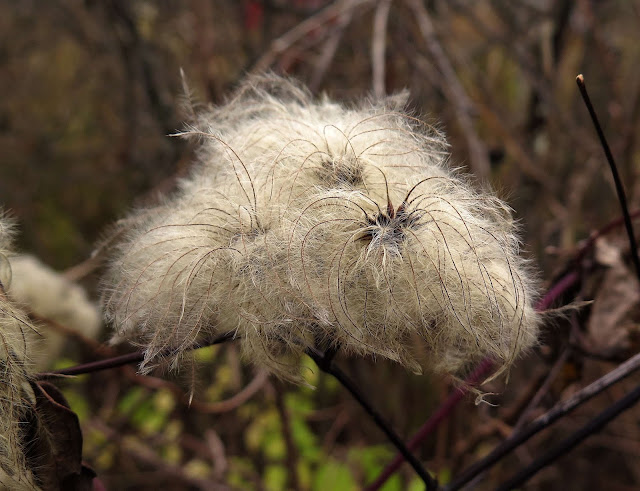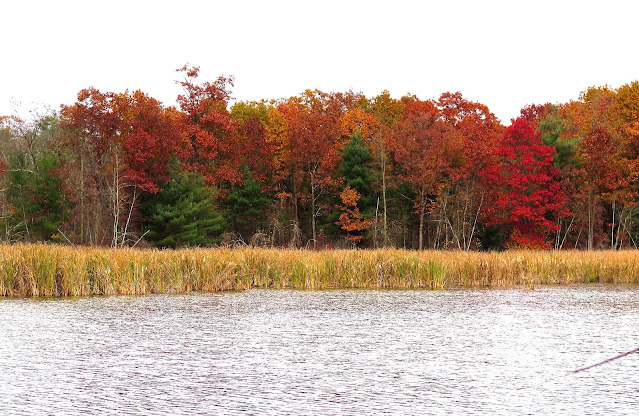When an old blog post of mine from October 31, 2019, showed up on my Facebook Memories yesterday, I was struck by how gorgeously colorful the Bog Meadow Brook Nature Trail had been on that date. So off I went to see if this year's experience there would match the one from four years ago.
Well, it didn't, quite. At least, it didn't seem to at first.
As this photo of the trail reveals, about the only color that now remained was in the still-green leaves of all the invasive honeysuckle that thrives along the first half-mile of this otherwise wonderful wooded wetland trail.
And these prettily curvaceous young fern fronds (some evergreen Intermediate Wood Ferns?) contributed a lovely surprise of spring green to this old moss-covered stump.
By the time I reached the section of trail that bordered an open marsh, an occasional sunbeam managed to poke through the otherwise almost complete cloud cover, brightening the scene.
Why would I consider finding a bunch of bugs a treat? Well, these are some truly amazing insects, almost miraculous, from a human point of view. For all of these little aphids, their bodies covered with an extruded white waxy "fur" to protect themselves from weather and predators, are the wingless female offspring not only of a single winged female aphid but also of each other, clones of the single wingless clone that the winged female first deposited on this alder twig. At the end of their feeding season and before dying and dropping away, these individual females will each produce a WINGED clone of herself, and some of these will be males! (How a female clones a male clone I have yet to comprehend!) Then all these winged Woolly Alder Aphids will fly off to some Silver Maple trees to find mates and lay eggs on the maple bark. The cycle than begins again next spring.
Meanwhile, many winged Woolly Alder Aphids are currently wafting about on the air, tiny pale-blue bits of fluff we now call "Fairy Flies." Here's a photo of one I chanced to capture a few years ago. Isn't she (or maybe it's a he) so lovely?















Thank you for taking me along on your walk!
ReplyDeleteAphids are interesting insects with a very different lifestyle than most six-legged critters.
ReplyDeleteA brilliant read! Your post is insightful, well-crafted, and thoroughly engaging. Thanks for sharing your valuable perspective.
ReplyDelete